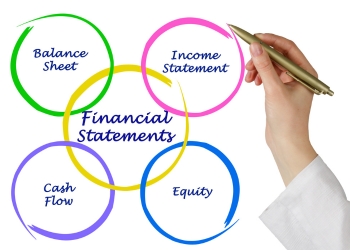
Accounting vs finance degree, two of the most popular business degrees? The short answer is that a finance major covers a wider range of business, economics, and banking specializations. Still, an accounting major focuses more on specific numbers within budgets, audits, taxes, etc. Continue reading to learn more about each job route that is perfect for you.
What is Finance?
Finance is the management and analysis of financial trends, investments, and opportunities using financial data and information. For instance, financial advisors concentrate on techniques that optimize investments and returns on investment.
A financial analyst's daily responsibilities include assessing recent and past financial data, researching business and economic trends, and recommending specific investments and portfolios based on analysis and trends.
Typical positions in the finance industry include:
Banking For Commercial Use
Financial Advisor
Investment Banker
Edge Fund Manager
Financial Trader
What is Accounting?
In the corporate environment, accountants and auditors oversee the daily cash flow of a firm while focusing on figures and financial reports. An accountant or auditor's regular duties can include reviewing financial statements, calculating taxes, keeping track of and organizing financial documents, and making recommendations for how to cut expenses, increase income, and boost profits.
Typical positions in the accounting industry include:
Accountant
Auditor
Payroll Administrator
Risk Evaluator
Tax Consultant
What is the difference between Finance and Accounting?
Finance uses the same data to assess possible growth patterns and strategically plan a company's finances. At the same time, accounting is a more specialized area that concentrates on professional processes to manage numbers and accounts. Despite having similar names and requiring comparable talents, these fields are different.
The distinction between finance and accounting depends on how you wish to work with a company's financial records. A student pursuing an accounting degree will control numbers instead of influencing them by applying professional principles and procedures. On the other hand, a student pursuing a degree in finance is likely to be more interested in financial strategy, control, and how to make smart investments based on market trends.
Accounting vs. Finance: Degree and Coursework
While the course options for degrees in accounting and finance differ, several essential business courses are common. A list of common courses for both majors is provided below.
Typical Courses for Finance and Accounting Degrees
Marketing Principles in Business Law
Business Morals
Principles of Finance
Management
International Business in Business Statistics I
Business II
Business III
The course options differ for majors in accounting and finance. Accountancy and Finance curriculum differs despite considerable topic overlap and similar skills required for both disciplines. A list of the various courses for both majors is provided below.
Top Jobs in Finance vs. Accounting
A degree in accounting or finance can lead to various fascinating job options in the business sector. See examples of career options for a finance vs. accounting degree below.
Top Finance Jobs
Budget Analyst
Advisor for Personal Finances Analyst of Finance
Sales Agent for Financial Services, Commodities
Securities as well as Financial Manager
Top accountant jobs
Financial Analyst
Auditor
Accountant
Accounting Specialist
Tax Examiner
Accounting vs. Finance: Potential Career Paths
It is evident from comparing accounting and finance vocations that both have bright futures. The Bureau of Labor Statistics (BLS) estimates that through 2026, there will be a ten percent rise in accounting positions.
Moreover, the BLS projects an 11% rise in financial analyst jobs during that time. These growth projections exceed all occupations nationwide's 7% average growth rate.
The expanding economy and complex, ever-changing tax regulations are projected to fuel the accounting industry's expansion. Companies that move from being privately held to publicly traded frequently require accounting professionals to assist with preparing financial papers.
Accounting and Finance: Comparing Features
It can be helpful to recognize the parallels between accounting and finance degrees for individuals deciding between the two fields of study. The following similarities are not necessarily true for all jobs and locations and are only intended to serve as a guide.
A profession in finance can be attained with any degree. Accounting majors are frequently employed as finance experts, even though a finance degree has a wider scope.
Professionals in these fields mostly rely on facts and numbers to make their claims and come to conclusions.
Professionals in these fields can work with various clients and organizations in the business, financial, and other areas.
Professionals in these fields can counsel upper management on financial decisions and transactions.
People with any degree may be able to pursue further degrees and certifications.
Disparities between accounting and finance
When choosing between a degree in accounting or finance, professionals and students should consider the distinctions between the two fields. The following summary of these variations is intended to serve as a guide. They are only sometimes appropriate for every work and every location.
Financial analysts typically plan the most efficient means of sourcing and allocating funds by analyzing financial data. Every day, accountants gather and report historical and current financial data to ensure that spending is consistent with an organization's success.
To effectively educate more comprehensive financial strategies, finance professionals primarily concerned with future investments analyze financial records and the market. To ensure that accounts are balanced and that a business is making the most of its resources, accountants concentrate on operations, transactions, and procedures.
Accounting jobs often need fewer hours, except at times like tax season. Finance positions, on the other hand, can be more demanding and involve longer hours.
Conclusion
In sum, on the topic of accounting vs finance degrees, we can see the different differences and similarities of both degrees. A business's accounting and financial components are crucial to the administration of its overall operations, which promotes the smooth operation of the enterprise.
When discussing the connection between accounting and finance, it becomes clear that although account finance component of finance, finance is a more general term that uses specific data and information to create sound financial judgments.
Comments (0)
Categories
Recent posts


How Long Does It Take To Get a Business ...
10 Oct 2023
Why Is School So Boring? Get The Answer ...
10 Oct 2023
Why Is It Crucial to Have a Competitive ...
26 Dec 2023



